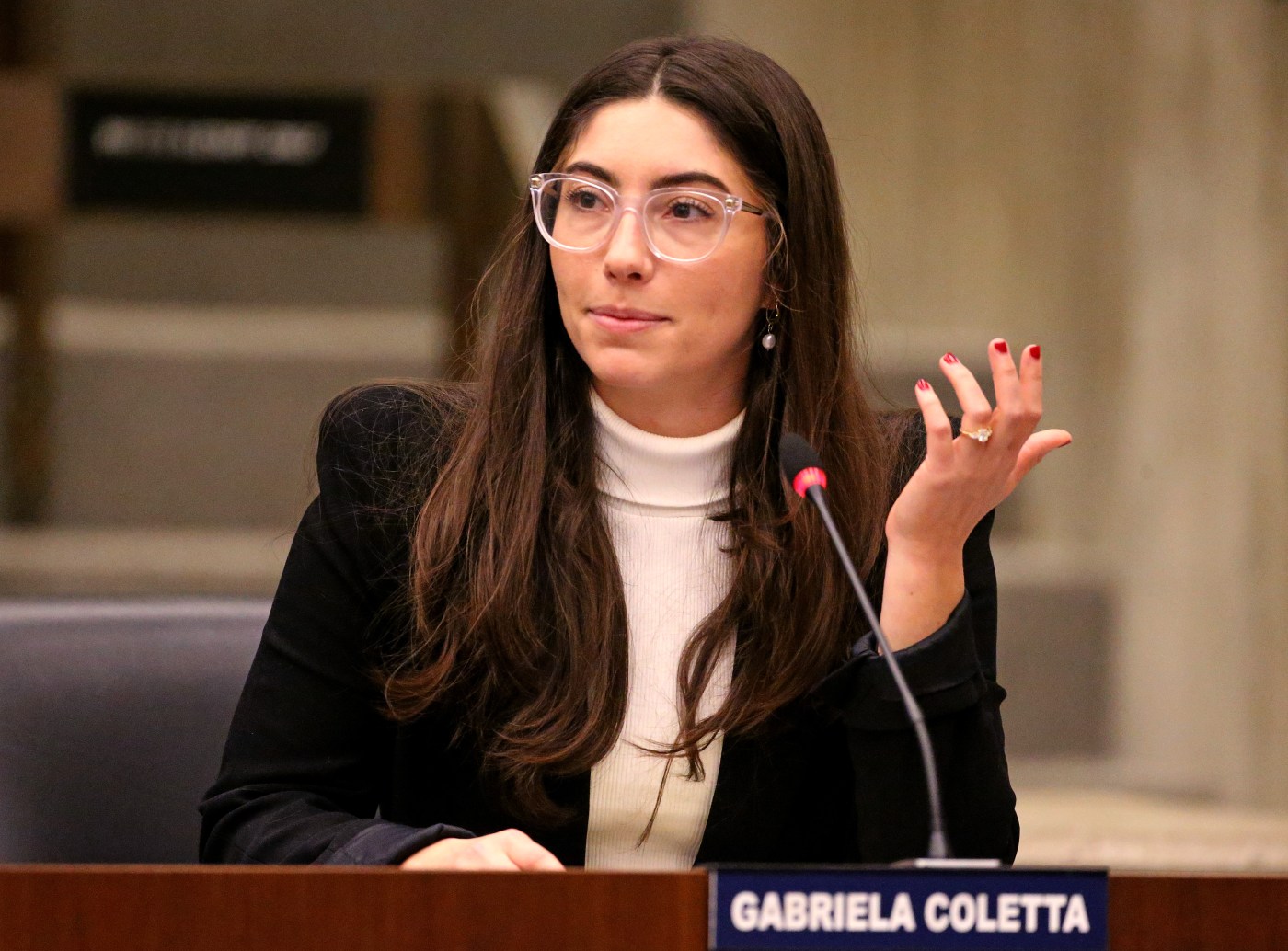
Boston City Council, Wu administration at odds over push to exempt small businesses from commercial tax hike plan
The Wu administration threw cold water on the Boston City Council’s push to partially exempt small businesses from the mayor’s plan to hike commercial tax rates, saying that the extra assessment work it would require may not be feasible.
Chief Financial Officer Ashley Groffenberger said that if the city were to adopt a small business exemption, it would require changes to the bill it sent to the state Legislature last month. It would also necessitate the review of roughly 6,000 commercial properties that are expected to qualify for the tax break, she said.
“This would be a significant administrative lift for the department,” Groffenberger said at a Tuesday City Council hearing on the proposed ordinance. “We estimate it would take 24 working days or five weeks of them doing nothing else, in order for them to do the work needed to implement this in time before the tax rate setting.”
The exemption would be built into the commercial property tax rate — which the city could increase beyond the state limit for four years under the mayor’s plan — and apply to properties with an assessed valuation of less than $1 million that are occupied by a business with no more than 10 employees.
Boston already has a residential exemption, which excludes a portion of a qualifying homeowner’s property value from taxation. The mayor and City Council typically adopt the maximum residential exemption, which per the city website, saved qualified homeowners up to $3,610 on their tax bill last fiscal year.
The City Council is seeking to provide similar tax relief for small businesses, such as “mom-and-pop” stores, restaurants, retailers, barbershops and corner stores that they say would be hurt the most by the temporary tax increase.
A number of councilors cited concerns with how the city’s plan to tax businesses beyond the state limit would impact those small businesses when discussing, and ultimately approving Mayor Michelle Wu’s home rule petition last month.
The city’s tax classification bill seeks to blunt the impact of what the mayor says could be a 33% increase in residential taxes brought on by declining commercial values next year, by shifting more of the tax burden to businesses.
Wu lobbied for the bill’s passage in a private meeting with state lawmakers this week, and anticipates there will be a formal legislative committee hearing on it next week, the mayor said Tuesday on GBH’s Boston Public Radio.
Councilor Gabriela Coletta Zapata, who proposed the local ordinance that would create the small business exemption, argued that the loss in tax revenue the city would experience from qualifying properties would be a “drop in the bucket” compared to the financial strain higher taxes would bring to mom-and-pop stores.
Related Articles
Howie Carr: Big bucks pensions Boston’s (costly) legacy
New Boston poll is pitting Josh Kraft against Mayor Michelle Wu in 2025 election
Boston explores congestion pricing in wake of New York’s failed plan
Boston city councilor urges Wu administration to take office vacancies ‘seriously,’ pushes for study group
Boston retirees making bank: Nearly 200 receive $10K or more in monthly pension
While higher tax rates would be borne by the commercial property owners, critics of the mayor’s plan pointed to how landlords would likely pass on the cost to their tenants, through measures like increasing rent for small businesses.
“We saw a third pathway forward to help small businesses,” Coletta Zapata said. “This is one way to get a little bit more money in the pocket of those who might feel this tax shift through the tax classification, should it be passed into law.”
Groffenberger pointed out, however, that the tax break provided by the exemption would be borne by the property owner, rather than the tenant. In Massachusetts, 14 of 351 municipalities have adopted a small business exemption, she said.
“We have no insight or control of those private transactions between the tenant and the landlord,” Groffenberger said, adding that it would be nearly “impossible for us to guarantee that benefit would flow directly” to small businesses.


